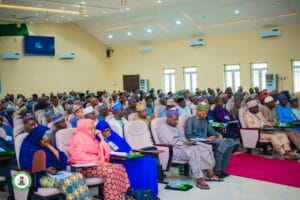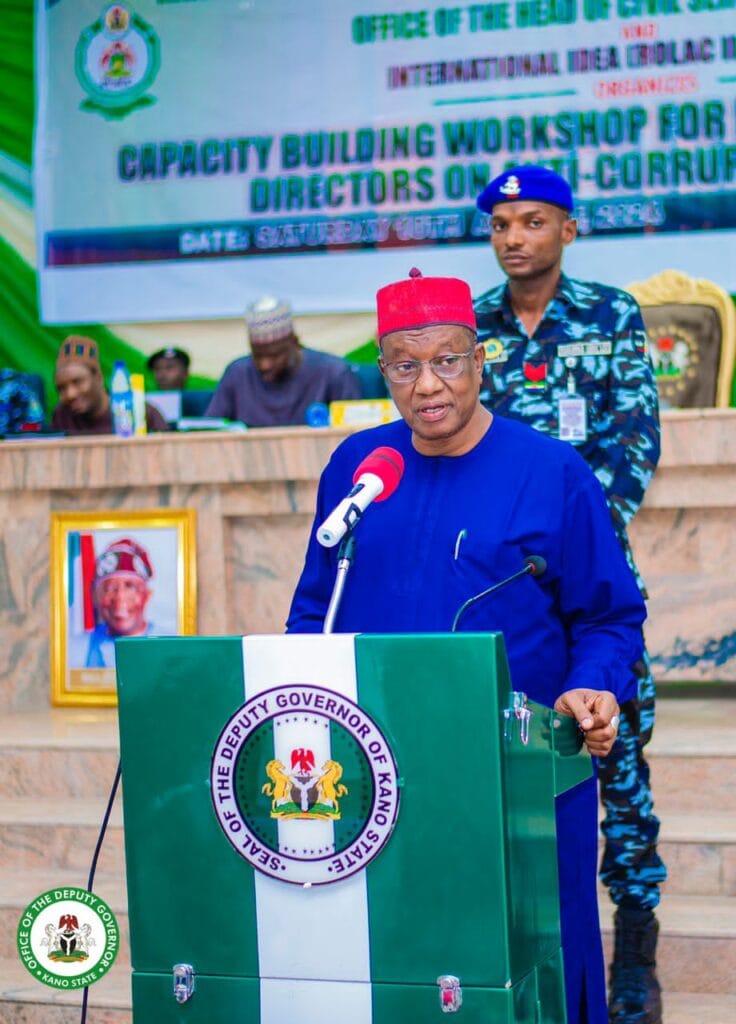By Hussaini Ibrahim Sulaiman
Kano State Government has restated unwavering commitments to continue putting in place appropriate measures to ensure that corruption does not thrive in the NNPP-led administration especially among civil servants.
The state Governor, Alhaji Abba Kabir Yusuf, disclosed this at a one-day capacity building workshop organized by the Kano State Public Complaint and Anti-Corruption Commission (PCACC) in collaboration with the office of the Head of Civil Service and International IDEA (ROLAC II), which aimed at enlightening civil servants about the dangers inherent in being corrupt.
Represented by his deputy, Comrade Aminu Abdussalam Gwarzo, who doubles as the Commissioner for Local Government and Chieftaincy Affairs, emphasized the state government’s relentless support to the PCACC and other relevant agencies to combat and mitigate the menace of corruption in the country.
His words: “the recent happening in Nigeria underscores the need to have a re-think in how things are run in this country and as a leader of arguably the most populous state in Nigeria, even before assuming office on May 2023, our blueprint contained details provisions of how to check mate corruption.

“As of today, no one shall be in doubt of how corruption undermines the progress and development of this nation, Kano State in particular has suffered and experienced one of the major grand corruptions perhaps above any other state in this region over the past eight years,” he lamented.
The governor further lamented the immediate past administration of Abdullahi Umar Ganduje for its callous negligence to essential sectors of health, education, water treatment plants and fraudulent sold of the state’s assets to unscrupulous and unpatriotic politicians at a small amount of money
Despite these challenges, the governor asserted that under his leadership, the state distinguished itself among its peers in terms of transparency, accountability, and probity in governance.
He reaffirmed his administration’s zero-tolerance policy on corruption, which remains sacrosanct.
Speaking earlier, the state Head of Service, Alhaji Abdullahi Musa had described corruption as a lack of accountability and transparency in service delivery.
He emphasized that the training was intended to equip directors with the knowledge necessary to combat corruption and to pass this knowledge down to their subordinates.
He reminded all directors that they are entrusted with the management of public services across the state and that they must display a high level of integrity, serving as role models for their subordinates.
On his part, the PCACC Chairman, Barr. Muhuyi Magaji Rimin Gado, explained that the workshop was aimed at directors of MDAs as many forms of government corruption are often executed through civil servants.
He noted that by educating civil servants on how to deliver their services transparently and accountably, corruption can be significantly reduced, not only in the state but across the nation.


